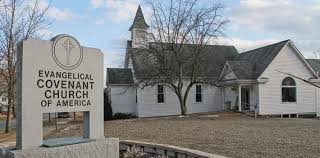White Privilege In Christianity, Can it Be Acknowledged In Church
The denomination I grew up in, the Evangelical Covenant Church of America, has a full time staff member dealing with race and the roll of white privilege in and out of the denomination. This denomination bills itself as the fastest growing Protestant denomination in the U.S. I think a lot of its growth has come from this focus on racial equality and that topic's appeal in large diverse cities. That, in turn, may have come from its only university and seminary which is located in downtown Chicago. It's still a small denomination however.
This fellow, Dominque Gilliard, is tasked with talking to other pastors, as opposed to congregation members themselves, about race. Instead of the word race, however, he uses the term "privilege."
He says pastors approach white privilege (and I suppose economic or class privilege) in one of three ways. One group simply does not acknowledge privilege exists and that way avoids the topic entirely. Another group of pastors admits it exists but does not want to risk talking about it. This group does not bring it up in sermons or private congregations. Pastors know it risks losing members and revenue. A third group discusses privilege from the pulpit and leans in. These congregations study and discuss how it can be harnessed for the good on their church and the faith.
Gilliard says the Bible admits privilege and uses it to advance the faith. He says there are many stories in the Bible where leaders recognize their own privilege but do not act on it. Instead they use it to help the less privileged. He used the story of Joseph's life, going from having privilege used against him to holding it himself.
To me, Gilliard is talking of a cultural trait rather than a religious one. I remember a true story of a conflict on a U.S. Navy vessel. A bitter dispute developed with a struggle for dominance about who got what duties and benefits. A leader emerged who took on the role of arbitrator. The writer realized this leader now held the position of privilege and could pull off a victory benefitting himself and his circle of friends. Instead, the writer said, the fellow took a path that more likely comes from the U.S. than from many other countries and cultures. He said the fellow held power but did not use it to his advantage.
I wish this fellow from the Evangelical Covenant denomination well. Resolving the problem of privilege can use any help from any source, including religion.




Comments
Post a Comment